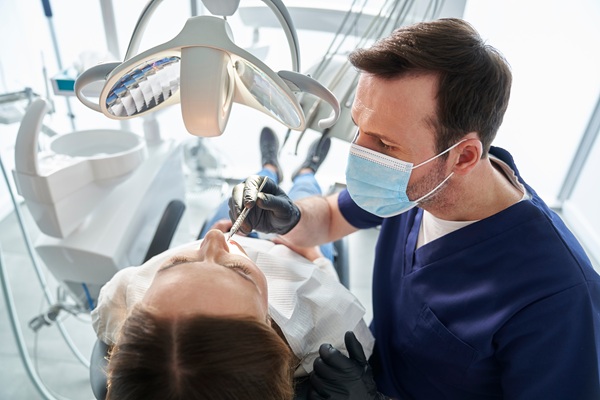Do Medications Impact Dental Health?

Many medications have negative impacts on your dental health. Aside from prescription and over-the-counter drugs, vitamins, minerals, and herbal supplements can cause dental issues such as inflamed gums, dry mouth, taste changes, and bone loss.
How medications affect dental health
Dry mouth
Saliva helps clean your mouth, but when its flow is changed, and your mouth gets dry, gum infections and tooth decay are likely to develop.
Common medications responsible for dry mouth include:
• Decongestants
• Antihistamines
• High blood pressure drugs
• Painkillers
• Sedatives
• Antidepressants
• Antacids
• Parkinson’s disease medications
If you experience dry mouth due to your medication, you can talk to your doctor about possibly finding a different medication that may not have the side-effect. If that option is not immediately possible, you can increase your water or liquid intake or try artificial saliva products to reduce the dryness.
Abnormal Bleeding
Anticoagulants and aspirins belong to the category of medications called blood thinners and reduce blood clotting. Although they are beneficial for averting heart attacks and strokes, they can start gum bleeding, usually during oral surgery.
If you have a dental appointment, ensure you notify your dentist of any medications you are using so that they can take necessary steps towards alleviating bleeding. Also, consider using a soft-bristled toothbrush and be gentle during flossing to prevent gum bleeding.
Taste Alterations
Some medications can make your mouth taste bitter or metallic. In some cases, the medicines may alter some meals’ taste. Examples of such medicines include cardiovascular drugs, Flagyl, stimulants (for ADD/ADHD), and nicotine skin patches.
If you find this side effect unbearable, talk to your doctor about changing the medication.
Soft Tissue Reactions
The soft tissues in your mouth may develop sores, inflammations, and discoloration due to prescription drugs such as immunosuppressive agents, oral contraceptives, and blood pressure medications.
If you are experiencing soft tissue reactions, notify your dentist to know what dental care treatment will help alleviate the pain.
Gum Enlargement
Also known as gingival overgrowth, swollen gums happen due to immunosuppressant drugs, anti-seizure drugs, and calcium channel inhibitors. If you are on any of these medications, you need to be cautious when flossing and brushing. Talk to your dentist to get proper instructions.
Risk of Cavities
Some medications like antifungal agents, antacids, cough drugs, and vitamins contain sugar that may potentially cause cavities.
Here is what you can do…
• Take medicines in tablet form
• Do not take the medication before bedtime
• Take the medicines while eating
• Brush with fluoride toothpaste or try sugarless gum
• Seek preventive dental care
Teeth and Gum Discoloration
Some drugs can change the appearance of your gum or teeth. Minocycline may cause a black stain on your teeth and dark discoloration on your gum. Chlorhexidine (used for gum disease) also causes teeth stains.
If you notice discoloration, consider asking your dentist about teeth whitening options that could help.
Bone loss
Medications such as corticosteroids can degrade the bone supporting your teeth. Using bisphosphonate (used for osteoporosis) may cause osteonecrosis of the jawbone, which damages the jawbone.
In the case of osteonecrosis, the dentist may recommend nonsteroidal anti-inflammatory drug or antibiotic to reverse any bone loss.
We are always ready to answer any additional questions you may have. Contact our office today!
Request an appointment in our Ashburn dentist office here: https://www.oaktreefamilydental.com.
Recent Posts
Almost everybody experiences bad breath occasionally. But for some individuals, this is a daily issue. It is important to know what causes bad breath in order to help you reduce the risk. Read on to learn more about what causes your halitosis.Bad breath is triggered by multiple things. It can originate both outside and inside…
Every adult patient has likely received a dental X-ray in their lifetime. This trusted imaging technology helps to get a deeper view of the teeth and jaw. Dentists use X-rays to evaluate the oral health of their patients and to spot any issues that cannot be determined through a visual examination.Also known as radiographs, X-rays…
When it comes to killing oral bacteria, there are specific natural remedies and tactics that someone can use. It is important to realize that not all bacteria are harmful. In this article, we will focus on some healthy habits to have in your daily routine in order to fight bacteria and help in maintaining a…
There are varying types of floss and tips for flossing, and there is no standard way that is best for everyone. In fact, there is no rule that states you cannot have more than one type of dental floss product in your home.Each serves its own purpose. For example, dental tape is a great tool…


